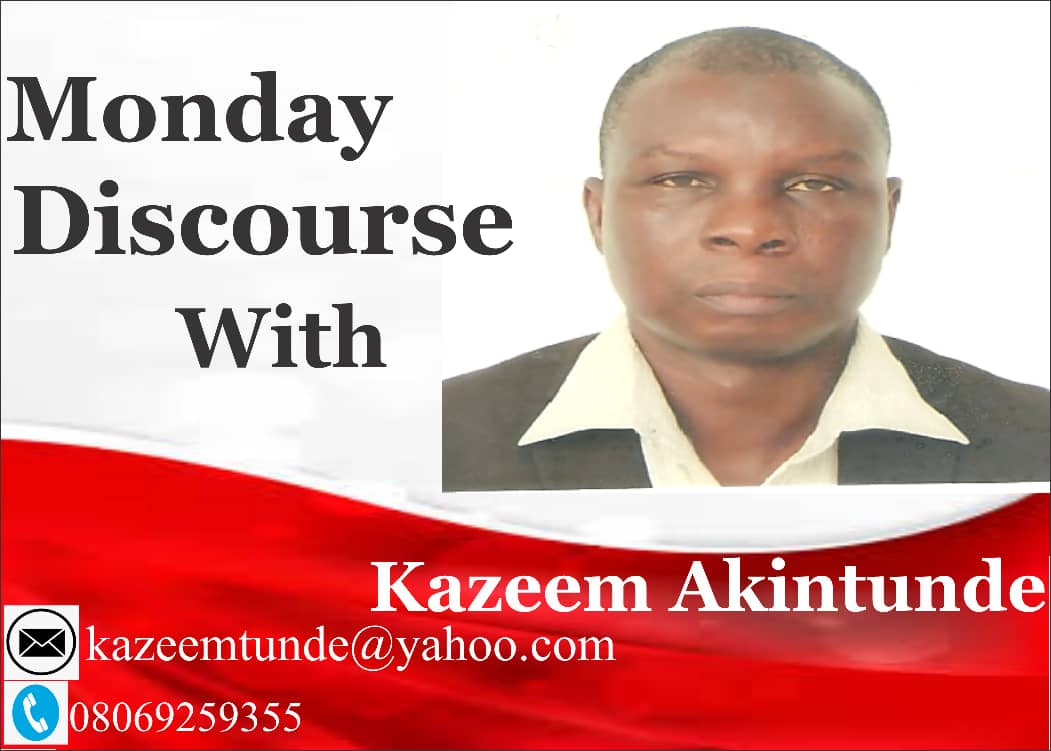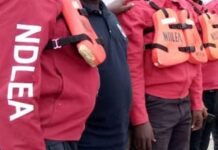By Kazeem Akintunde
In three months’ time, Nigerians will head to the poll to elect a new President that will lead Africa’s most populous country for the next four years. Going by their popularity and antecedents, there are three major contenders for the number one job although 18 of them would be on the ballot. The leading presidential candidates are Atiku Abubakar of the People’s Democratic Party, PDP; Asiwaju Bola Ahmed Tinubu, of the ruling All Progressive Congress, APC, and Peter Obi, of the Labour Party.
While not completely dismissing others such as Rabiu Musa Kwankwaso, of New Nigeria Peoples Party, NNPP, Kola Abiola of the Peoples Redemption Party, PRP, Omoyele Sowore of Advanced Allied Party, AAP among others, we believe that only the three aforementioned leading candidates have the clout and political reach to potentially emerge as Nigeria’s President on May 29, 2023.
Starting today, we shall examine the strengths and weaknesses of the three leading contenders. This week, our focus will be on Atiku Abubakar-candidate of the PDP.
Except for last-minute rapprochement, Governor Nysom Wike and four other PDP Governors, also known as the G-5, that have constituted themselves into opposition within the PDP, may be the albatross that would play a significant role in Atiku Abubakar’s defeat in the 2023 presidential election. Since losing the party’s presidential ticket in May, and overlooked as running mate to Atiku, Wike has behaved more like a woman scorned by her lover and seems hell-bent on getting his pound of flesh.
Indeed, Wike was scorned by Atiku, who, despite his recommendation by the three-member committee set up by the party for that purpose, overlooked Wike, to settle for Ifeanyi Okowa, Delta State Governor, instead. Since that humiliation, an unforgiving Wike has tried to get his pound of flesh by ensuring that Iyochia Ayu, the National Chairman of the PDP, loses his plum job. Ayu’s sin is apparently that he hails from a section of the country that should not hold office from the same zone where Atiku also comes, being the North.
Efforts aimed at calming the raging storm from consuming the party in the last few months have met with a brick wall, a development that has left the PDP more vulnerable under its current leadership. Wike has been consistent in his call for Ayu to step aside from his position to allow someone from the South to occupy the National Chairmanship position of the party. He is of the view that since Atiku is from the North, it would be morally wrong for the Party’s National Chairman to be from the same geographical zone as Atiku.
Indeed, it was Wike’s belief in equity and fairness that made him sacrifice his brother, Uche Secondus, the former National Chairman of the Party and fellow politician from Rivers State, when he started nursing a presidential ambition. He felt and rightly so, that it would be wrong for the party to parade a presidential candidate and National Chairman from the South. Secondus was thrown under the bus, and Wike, alongside the Benue State Governor, Samuel Ortom, brought Ayu out of political retirement to be the National Chairman of the party.
Wike, however, received the shock of his life, when, with the support of Aminu Tambuwal, Sokoto State Governor, Atiku emerged as the presidential candidate of the party. Now, both offices have gone to the North and Wike, again, not comfortable with the situation, and with the backing of four other PDP governors, that have been tagged as the G-5, has vowed not to leave the party but will not work towards Atiku’s success in next year’s general elections. To give fillip to the decision, they have collectively pulled out of the Presidential Campaign Council, PCC, of the party.
The group, in its bid to impact maximum damage to the presidential ambition of Atiku, was in Bauchi State recently to meet another PDP governor that is not happy with the treatment he has received so far from the party. Wike’s visit to his Bauchi State counterpart, Bala Mohammed, followed a meeting between Atiku and Mohammed in Abuja, after the latter had threatened to leave the presidential campaign council over allegations by the governor that some Bauchi State politicians loyal to Atiku were working against his re-election bid in the state.
Wike, at the meeting with Mohammed, said that whatever affected the Bauchi governor also affected them as a group. “The reason we resolved to reach out to him is to give support for his second term bid. We came here in solidarity with our friend, the Governor of Bauchi State. We know that he is running for a second term and what we are doing to our friends is to find out how things are with them, and how the elections are going. This period is a period to identify with your friends”.
It is hoped that Atiku’s meeting with Mohammed will stop the Bauchi Governor from teaming up with Wike and his ‘rebel governors’.
Atiku is, however, not ready to sacrifice Ayu, and has continued to insist that it was too late in the day for the party to consider removing Ayu few months before the general elections. As expected, there are moves to drag former President Ibrahim Babangida into the fray to mediate a truce between the G-5 governors and the party. Last week, Wike gave a glimmer of hope when he said that his group is still open to reconciliation but that they may not shift from their single demand, which is for Ayu to resign so that a Southerner can occupy the position for fairness, equity, and justice to prevail in the party.
On Friday last week, Atiku led a team of PDP bigwigs to Minna, the Niger State capital, to meet with Babangida, with the hope that an amicable resolution could be reached to douse the raging crisis in the party. If Wike and his group stick to their guns, it would be the single most likely factor that may prevent Atiku from realising his lifelong ambition.
Another factor that could work against Atiku is the fact that he is another Fulani man wishing to take over from President Muhammadu Buhari, himself a Fulani man, who, through his nepotistic disposition, allowed herdsmen from outside the shores of Nigeria to gain a foothold in the country, turning Nigeria into an unguarded killing field. Ortom alluded to this view when he said that he would never support another Fulani man to take over from Buhari, pointing out that it was herdsmen from their extraction that drove his people away from their farms, killing and kidnapping many in the process.
Although Ortom later apologized for the statement, many Nigerians are indeed not comfortable with another Fulani man at the helm of affairs, even though he may be from a different political party. It remains palpable that many of such people will speak with their ballots on Election Day.
At 75, age is also not on the side of Atiku, as many are questioning his health status. Although he has since come out to declare that he enjoys robust health, Nigerians do not appear to be quite convinced and this may work against him at the poll.
The corruption allegation leveled against him by former President Olusegun Obasanjo is also another albatross hanging on the neck of Atiku. Even though he has denied the allegations on several occasions, Nigerians are not fully convinced and regard him as another politician bent on cornering the wealth of the Nation for himself and his cronies.
The emergence of Peter Obi as the candidate of the Labour Party is also expected to erode the block vote Atiku would have gotten from the South East and South south geo-political zones of the country. Both zones are known regions that have delivered block votes to the party in the past but with Obi in the race, Atiku will most likely struggle for votes in the region next year.
Again, the emergence of Rabiu Musa Kwankwaso as the presidential candidate of the New Nigeria People’s Party, NNPP, will eat into the block vote Atiku should have garnered in the North. Kwankwaso, a former Governor of Kano state, is another popular candidate from the North, and he is expected to perform well in Kano and other North West states. Again, if President Muhammadu Buhari fully backs his party’s candidate, Tinubu, and leads the campaign, he is expected to win some states up North for the ruling APC, notwithstanding the fact that the party has been adjudged by many to have performed poorly in it’s eight years rule so far.
What Atiku has going for him is the financial muscle to rival other candidates. He is also the most experienced for the job amongst the candidates, having been a former Vice president to Olusegun Obasanjo for eight years and a politician with contacts all over the country. Due to his age, he has promised to rule for only four years and to support the South East in its quest for the Presidency in 2027. However, politicians cannot be trusted with their promises in Nigeria, as such, that promise holds no water to them.
After all is said and done, I don’t see Atiku winning next year’s presidential election.
See you next week.




